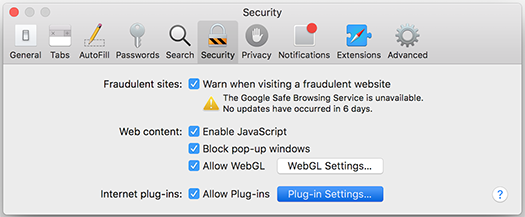Top 10 Useful Safari Plugins For Mac
Safari is quite willing to disclose which plug-ins are installed, although many people end up looking in the wrong place for this information. The first time we wanted to find out how Safari manages plug-ins, we looked in Safari’s preferences (from the Safari menu, select Preferences). Nope, they’re not there.

The View menu seemed to be the next likely possibility; after all, we wanted to view the installed plug-ins. Nope, they’re not there either. When all else fails, try the Help menu. A search for ‘plug-ins’ revealed their location. Other types of plug-ins you’ll probably see include, Shockwave Flash, and Silverlight Plug-in.
If you want to remove a plug-in, you need to know its file name. To find this information, look through the plug-in descriptions on the Installed Plug-ins list.
For example, to remove the Shockwave or Flash plug-in, look for a Shockwave Flash entry in the Description column for the Flash Player.plugin. Once you locate the description for the plug-in look to the area just above the table entry for that plug-in, you will see an entry like the following: Shockwave Flash 23.0 oRo - from file Flash Player.plugin. The last part of that entry is the file name, in this case, Flash Player.plugin. Safari stores its plug-in files in one of two locations. The first location is /Library/Internet Plug-Ins/. This location contains plug-ins that are available to all users of your Mac and is where you will find most plug-ins. The second location is your home directory’s Library folder at /Library/Internet Plug-ins/.


Top 10 Useful Safari Plugins For Mac Free
The tilde in the pathname is a shortcut for your user account name. For example, if your user account name is Tom, the full path name would be /Tom/Library/Internet Plug-ins.
Flash Plugin Safari Mac
This location holds plug-ins that Safari only loads when you log in to your Mac.